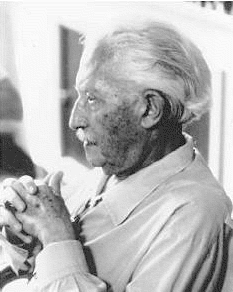A Quote by Madeleine L'Engle
Because to take away a man's freedom of choice, even his freedom to make the wrong choice, is to manipulate him as though he were a puppet and not a person.
Related Quotes
One could even argue that we have a duty to create and pass on stories about choice because once a person knows such stories, they can't be taken away from him. He may lose his possessions, his home, his loved ones, but if he holds on to a story about choice, he retains the ability to practice choice.
There is always a choice." "You mean I could choose certain death?" "A choice nevertheless, or perhaps an alternative. You see I believe in freedom. Not many people do, although they will of course protest otherwise. And no practical definition of freedom would be complete without the freedom to take the consequences. Indeed, it is the freedom upon which all the others are based.
There can be no truly moral choice unless that choice is made in freedom; similarly, there can be no really firmly grounded and consistent defense of freedom unless that defense is rooted in moral principle. In concentrating on the ends of choice, the conservative, by neglecting the conditions of choice, loses that very morality of conduct with which he is so concerned. And the libertarian, by concentrating only on the means, or conditions, of choice and ignoring the ends, throws away an essential moral defense of his own position.
In Hollywood, the ... basic freedom of being able to choose between alternatives is absent. The gifted people who have the capacity for choice cannot exercise it; the executives who technically have the freedom of choice do not actually have it, because they usually lack the knowledge and imagination necessary for making such a choice.
Why would a person prefer the accusations of guilt, unworthiness, ineptitude — even dishonor and betrayal — to real possibility? This may not seem to be the choice, but it is: complete self-effacement, surrender to the “others,” disavowal of any personal dignity or freedom — on the one hand; and freedom and independence, movement away from the others, extrication of oneself from the binding links of family and social duties-on the other hand. This is the choice that the depressed person actually faces.
The strengths a young person finds in adults at this time-their willingness to let him experiment, their eagerness to confirm him at his best, their consistency in correcting his excesses, and the guidance they give him-will codetermine whether or not he eventually makes order out of necessary inner confusion and applies himself to the correction of disordered conditions. He needs freedom to choose, but not so much freedom that he cannot, in fact, make a choice.
I tell Thee that man is tormented by no greater anxiety than to find someone quickly to whom he can hand over that gift of freedom with which the ill-fated creatures is born. But only one who can appease their conscience can take over their freedom […] Instead of taking men's freedom from them, Thou didst make it greater than ever! Didst Thou forget that man prefers peace, and even death, to freedom of choice in the knowledge of good and evil?
Man has been called a rational being, but rationality is a matter of choice-and the alternative his nature offers him is: rational being or suicidal animal. Man has to be man-by choice; he has to hold his life as a value-by choice; he has to learn to sustain it-by choice; he has to discover the values it requires and practice his virtues-by choice. A code of values accepted by choice is a code of morality.
Even in an intensely mediated world, in a world that offers at least the illusion of radical self-invention and radical freedom of choice, I as a novelist am drawn to the things you can't get away from. Because much of the promise of radical self-invention, of defining yourself through this marvelous freedom of choice, it's just a lie. It's a lie that we all buy into, because it helps the economy run.
Here is the trap you are in.... And it's not my trap—I haven't trapped you. Because abortions are illegal, women who need and want them have no choice in the matter, and you—because you know how to perform them—have no choice, either. What has been violated here is your freedom of choice, and every woman's freedom of choice, too. If abortion was legal, a woman would have a choice—and so would you. You could feel free not to do it because someone else would. But the way it is, you're trapped. Women are trapped. Women are victims, and so are you.




































